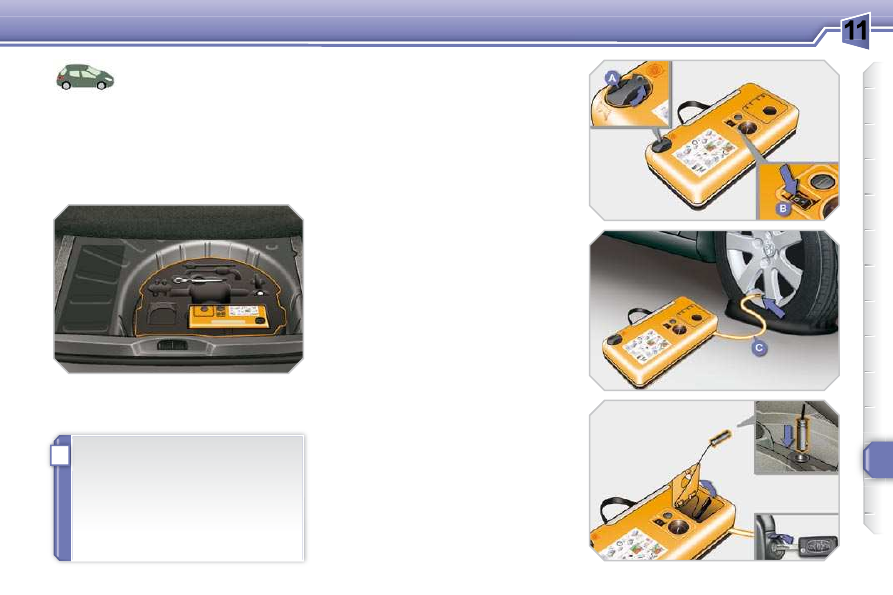Peugeot 308 SW BL Dag (2009.5). Manual - part 11

11
i
165
PRACTICAL INFORMATION
This repair kit is available from
PEUGEOT dealers.
It is designed to repair most punc-
tures which could affect the tyre, lo-
cated on the tyre tread or shoulder.
Avoid removing any foreign bodies
which have penetrated the tyre.
TEMPORARY
PUNCTURE REPAIR
KIT
The kit is stowed in the boot below the
fl oor. It is fi tted in the tool box, located
below the storage compartment.
Using the kit
This procedure, comprising several
steps, must be carried out in full.
Switch off the ignition.
Turn the selector A to the "SEALANT"
position.
Check that the switch B is in
position "0" .
Connect the white pipe C to the
valve of the tyre to be repaired.
Connect the compressor's electric
plug to the vehicle's 12 V socket.
Affi x the speed limitation sticker
to the vehicle's steering wheel
to remind you that a wheel is in
temporary use.
Start the vehicle and leave the
engine running.
Access to the kit
Complete system consisting of a com-
pressor and an incorporated sealant
cartridge which permits temporary re-
pair of the tyre so that you can drive to
the nearest garage.